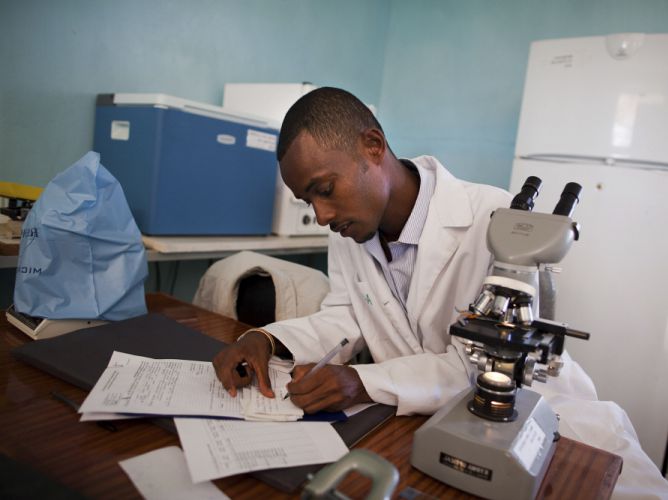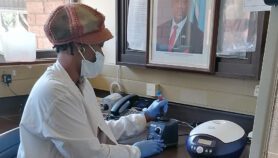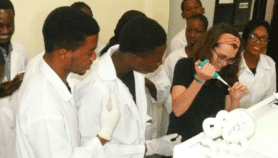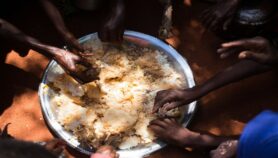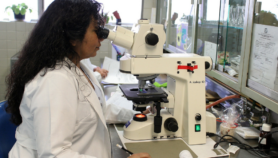By: Linda Nordling
Send to a friend
The details you provide on this page will not be used to send unsolicited email, and will not be sold to a 3rd party. See privacy policy.
Some good news, at last.
To many of the earth’s inhabitants, 2015 has been a year of hardship. Millions fled their homes to escape the spectre of war. Droughts and floods have brought societies to their knees. [1]
However, amid all this turbulence there is good news for Africa. The United Nations Educational, Scientific and Cultural Organization (UNESCO) Science Report, published last month (10 November), gives incontrovertible proof that the continent’s scientific renaissance is under way. [2]
The report reinforces the feeling that has been felt by many working as, or with, scientists in Africa that the continent is pulling ahead in terms of both research quantity and impact.
“As the year draws to a close it is important to celebrate these advances and the people who made it possible, especially Africa’s own policymakers and scientists.”
Linda Nordling
As the year draws to a close, it is important to celebrate these advances and the people who made it possible, especially Africa’s own policymakers and scientists.
Strength to strength
The UNESCO Science Report is full of figures showing Africa’s recent uplift.
The number of research articles published on the continent rose by 60 per cent between 2008 and 2014. Its share of global publications rose from 2 to 2.6 per cent in the same period.
Africa’s gross expenditure on research and development (R&D), also known as GERD, grew from US$12.9 billion in 2007 to US$19.9 billion in 2013, calculated at constant 2005 prices. The continent’s R&D spend as a percentage of gross domestic product grew steadily, too —from 0.36 per cent in 2007 to 0.45 per cent in 2013.
It gets even more interesting at regional and country levels. The Arab states saw faster growth in R&D spend than Sub-Saharan Africa. But Sub-Saharan Africa’s growth was healthy too.
Sub-Saharan Africa’s R&D spend grew by a little less than a third, in constant prices, between 2007 and 2013. But if South Africa’s spend is excluded from the total, the growth in the sub-continent’s R&D spend is bigger — over 80 per cent.
The reason for this is that South Africa’s R&D spending has been dropping since 2008. This negative trend has been offset by countries such as Ethiopia, Ghana and Kenya, where research investments have increased significantly.
Foreign and local support
Who is to thank for this development? Obviously, since much of African science remains funded from non-African sources, international donors have played a part that cannot be ignored.
They include the usual suspects such as the Wellcome Trust in the United Kingdom, the International Development Research Centre in Canada, the US National Institutes of Health, the European Union and the UK Department for International Development.
However, recent years have seen new players emerge. These include funders such as the Chinese government, whose interest in Africa extends to supporting training and research on the continent.
“The result of the increased funding combined with better domestic support for R&D has been a net increase in scientists on the continent.”
Linda Nordling
But the achievements noted in the UNESCO science report would have been impossible were it not for the backing of African governments.
The countries with the most impressive performance in Sub-Saharan Africa — Kenya, Mali and Uganda among them — have seen solid backing for R&D from the very top of their governments for a number of years now.
No time to rest
The result of the increased funding combined with better domestic support for R&D has been a net increase in scientists on the continent. There were just over 150,000 researchers in Africa in 2009. In 2013, there were nearly 190,000, UNESCO says.
There are scientists returning from the diaspora, such as Gordon Awandare from Ghana, who since his return home from the United States in 2010 has fulfilled his dream — establishing a laboratory in the University of Ghana — with the backing of solid international grants [3].
A greater number of scientists are also being trained on African soil, either through regional training networks or through partnerships with institutions in Asia, Europe, Latin America and the United States.
But while it is important to celebrate these achievements, there is no time for the continent to rest on its laurels. A World Bank report on African research performance in science, technology, engineering and mathematics subjects launched in November this year found that Africa’s scientific rise has been dominated by the health sciences. [4]
Egypt, Kenya, Nigeria and South Africa, Africa’s research powerhouses, are not growing scientifically at par with key emerging economies such as Brazil, China and India.
Between now and the next UNESCO Science Report, due in 2020, Africa must equal and even exceed its performance hitherto in order not to lose the gains made so far. It must also boost its performance in non-health subjects.
This will require renewed investment, renewed political will and renewed training support and job opportunities for young bright Africans. Or Africa’s scientific renaissance could be over before it even started.
Journalist Linda Nordling, based in Cape Town, South Africa, specialises in African science policy, education and development. She was the founding editor of Research Africa and writes for SciDev.Net, Nature and others.
This piece was produced by SciDev.Net’s Sub-Saharan Africa English desk.
References
[1] BBC El Nino threatens 'millions in east and southern Africa' (BBC, 10 November 2015)
[2] UNESCO UNESCO Science Report: towards 2030 UNESCO, 2015)
[3] The Royal Society Dr Gordon A Awandare (The Royal Society, 2015)
[4] Andreas Blom and others Sub-Saharan African science, technology engineering and mathematics research: A decade of development (International Bank for Reconstruction and Development/The World Bank, 2016)


